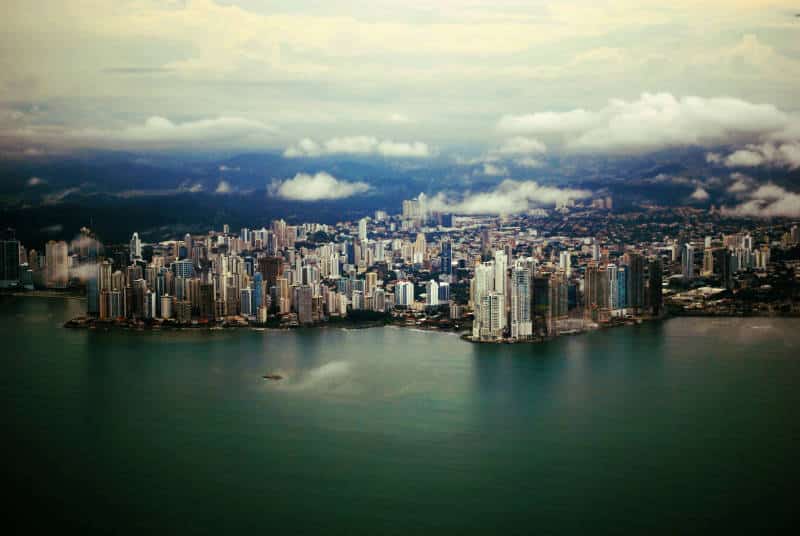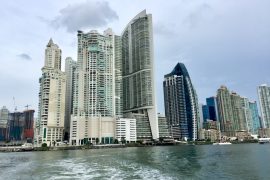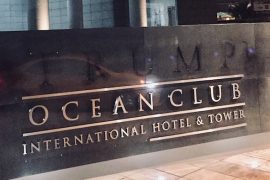For months, I have noticed the following comments being shared on social media and TV:
Panama’s economy is slowing down.
This government is not doing enough to drive economic activity.
We used to grow 11% a year.
For someone who is not from here or doesn’t live here, it appears that Panama’s boom is fading away. But for me, a 22 year old who just graduated, this is the perfect scenario to position Panama not only as the hub for logistics and finance, but also as the hub for innovation in the Americas.
My proposition is: Let’s take advantage of Panama to bring the smartest, the most creative, and the most determined people that can help us build a better country. Sounds cool? It may be a reality. And that’s why I decided to write on innovation in Panama. Specifically, I want to touch down on innovation around the so-called Sharing Economy.
The New York Times referred to other synonyms for this term in an article in 2014. Some of the synonyms mentioned were the peer economy, the collaborative economy, and the gig economy.
In my words, the sharing economy could be understood as an increasing trend in the field of economics in which people transfer goods and services to others by focusing on borrowing rather than selling. This principle can be applicable to basically all industries and has been applied by popular companies such as Uber, Airbnb, Couch Surfing, Tu Chofer PTY, and DogVacay. When a person engages in this type of activity, the person must feel like they live in an apartment in Barcelona without thinking of a mortgage, or that a person has a driver that can take them wherever they want in San Francisco without worrying about car insurance. The sense of serenity and comfort possible with the Sharing Economy is limitless. Likewise, there are disadvantages and obstacles that come along with the Sharing Economy.
So the question is, what role does the Sharing Economy play in Panama? I had the opportunity to attend a presentation by Stephanie Lievano and Alejandro Carbonell at the Innovation Center (City of Knowledge). The presentation focused on the stages of a start-up and the entrepreneurship environment in Panama. They talked about the process of obtaining support from the Innovation Center in order to grow an idea into a business for over an hour. It was such an interesting topic but I felt I had to come back for more information. One hour was not just enough. So I arranged a meeting-interview with Alejandro for me to get more insights on what it takes to become a sharing-economy entrepreneur in Panama.
The day came and I met Alejandro, founder of the start-up Tutorez, Alejandra Lizarazu (Alejandro’s co-worker), and Melisa De Leon (another young entrepreneur who is working on her business idea). Alejandro shared with me part of his experience and modus operandi at his office. After graduating college, working for 3 years, and attending grad school in Spain, he undertook his idea of taking effective face-to-face tutoring to the next level in Panama. He felt tutoring services could be improved by focusing on the channels through which people got tutors. He organized the main components of his idea as well as the necessary channels of exposure for Tutorez. Nowadays, Alejandro, along his co-workers, are working hard to get more clients, grow his business, and offer better tutoring services to students.
[adrotate group=”11″]
Melisa’s story is similar. She just arrived from Spain after attending grad school. She has been working on her start-up idea, Study Gate. Her idea focuses more on connecting people who need grants and scholarships to the organizations who offer these types of financial aids in the most effective way. Inspired by the popular social network Linkedin, she plans to target her idea to high school students in search for scholarships so students can ensure their educational goals. Melisa is still organizing the key parts of her idea and plans to obtain support from the Innovation center.
Alejandro and Melisa touched down on very important things that people should consider when becoming an entrepreneur. The key takeaways I got from the meeting were:
- Don’t re-invent the wheel. Innovation is the key.
- It’s always good to have some working experience before becoming your own boss.
- Being in an environment with people like you is a driver to keep your self-esteem high.
- Work hard to escalate your business idea as well as plan an exit strategy.
- Make sure you can calculate acquisition costs effectively. This will help you define your business model and tell whether your idea is profitable or not.
- Don’t be afraid to share your idea with others. You are not perfect!
- Get a good team! It is impossible to do it all alone.
I felt that the meeting served as a motivator for those who want to start a business in Panama. Regardless if people feel they don’t have the skills or resources necessary to execute a business idea, those resources are available if one commits. If there were a word in which I could sum up the meeting it would be opportunity. Our lovely country is full of opportunities for people from all places with all kind of talents!

















Comments are closed.